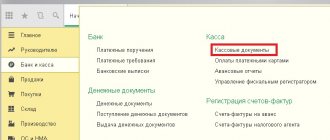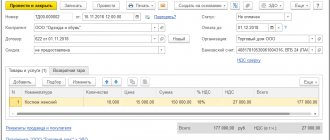Can a founder lend to his company?
The company and its founder, if necessary, can act as parties to a loan agreement - a mutual agreement on the transfer of funds or other property to the borrower from the lender into ownership.
Find out more about borrowed funds by following the link.
Borrowing relationships with the founder allow the company to urgently receive money or other items at the lowest cost:
- for carrying out current business activities;
- expansion of the material base;
- introduction of new technologies;
- for other purposes (for making a deposit for participation in a tender, paying off debts, etc.).
There are no special regulatory restrictions in relation to the company (borrower) and the founder (lender). Therefore, the founder can lend his company:
- money or any other property that has common generic characteristics (model, color, variety, etc.) - clause 1 of Art. 807 Civil Code of the Russian Federation;
- borrowed funds in any amount and for any period;
- with or without interest.
You can view and download a sample interest-free loan agreement between the founder and the organization in ConsultantPlus. Trial access to the system is provided free of charge.
The borrowing company can borrow from the founder:
- regardless of the size of its share in the authorized capital;
- for specific purposes (targeted loan) or without specifying the purpose of the loan;
- subject to the obligation to return the borrowed funds received and to formalize the loan agreement in writing (Article 808 of the Civil Code of the Russian Federation).
ConsultantPlus has tax specialists’ answers to various questions from taxpayers. For example, Advisor to the State Civil Service of the Russian Federation, 1st class A.A. Batarin explained:
If you don't have access to the system, get a free trial online.
Tax consequences
Starting from 2021, the legislator considers receiving an interest-free loan an economic benefit. This benefit is determined in the amount of the Central Bank key rate in force during the settlement period. This period is considered to be a month.
In practice, this means that the borrower must pay monthly personal income tax in the amount of 35% of the loan amount, indexed by 2/3 of the Central Bank key rate.
Taxation example
For example, the founder took out an interest-free loan in the amount of 100,000 rubles on 1.01. 2021.
In January 2021, 7.75%.
100,000*7.75%*2/3*35%= 1,806 rubles. The borrower will have to pay this amount of personal income tax.
If the borrower is not a resident of the Russian Federation, the tax rate will be 30%.
Personal income tax is not levied if the loan was received for the purpose of purchasing or constructing housing, purchasing a room, a house, a plot of land for building a house, etc. In this case, the borrower must retain the right to a tax deduction. If the debtor has already exercised this right, the tax preference does not apply.
Thus, to apply this benefit, the tax agent should rely on a document confirming property rights to the above-mentioned objects and official confirmation of the right to a tax deduction from the Federal Tax Service.
In this case, the creditor company is a tax agent and is obliged to withhold personal income tax from the founder’s salary (if he is on the company’s staff) or from dividends.
What is considered material benefit?
Since 2021, changes have come into force regarding the recognition of interest-free use of a loan as a material benefit. They are enshrined in Federal Law No. 333-FZ of November 27, 2017, and fix two defining features of material benefit.
If at least one of them is present, then interest-free use of the loan is recognized as a material benefit:
- If the borrower is an employee of a business entity or is in another interdependent relationship (founder);
- If the borrower's failure to pay interest is financial assistance or satisfaction of the lender's obligations to the borrower (including for goods supplied, work performed or services rendered).
These rules also apply to loan agreements concluded before 1-1/2018 (letter of the Ministry of Finance dated 06/26/2018 No. 03-04-07/43786).
How to minimize tax expenses?
The monthly obligation of the borrower to pay tax on material benefits when using an interest-free loan is clearly stated in the law.
It is possible to minimize tax expenses by taking out a loan at minimal interest - slightly above 2/3 of the Central Bank key rate.
In this case, the company pays tax as for non-operating income. These incomes are subject to income tax, the base rate of which is lower - 20% versus 35 personal income tax. In addition, the interest-bearing loan agreement can be extended, making it indefinite.
Taking out an interest-free loan has very conditional benefits, which are offset by the tax burden or even lead to a minus.
Reporting when paying personal income tax on material benefits
Information about the material benefit received and the tax on it should be reflected in the declarations:
- 2NDFL (this type of material benefit is indicated under code 2610)
- Calculated according to form 6-NDFL.
Sometimes the tax agent does not have the ability to withhold money to pay taxes. This can happen if the borrower does not have an employment relationship with the company and does not receive dividends.
In this case, in addition to standard reporting for 2NDFL, it is necessary to inform the Federal Tax Service before March 1 of the year following the reporting year about the inability to pay the calculated tax.
This can be done by providing 2NDFL with sign “2”, and be sure to send this certificate to the debtor himself.
Loan agreement with the founder: how to protect yourself from mistakes?
The return of money under the loan agreement is one of the final stages of the borrowing relationship. It is preceded by such important procedures as:
- agreeing on the terms of the loan;
- drawing up a loan agreement;
- transfer of borrowed funds from the founder to the company and preparation of a supporting document (transfer and acceptance certificate, receipt, etc.);
- reflection in accounting of operations to obtain borrowed funds.
If mistakes are made in these steps, problems may arise at the loan repayment stage. Therefore, check in advance:
- whether the property transferred under the loan agreement has individual characteristics (for example, a car with a title and identification number cannot be the subject of a loan);
- currency of the monetary obligation - according to Art. 317 of the Civil Code of the Russian Federation, such an obligation must be expressed in rubles (foreign currency may appear in the loan agreement, but only as an equivalent at the rate of the Central Bank of the Russian Federation);
- whether the loan agreement provides for all its essential (subject of the loan and its repayment) and additional (repayment period, interest-free condition, etc.) conditions.
IMPORTANT! If the loan agreement does not contain provisions on interest or the absence thereof, the loan is considered interest-bearing. Interest is calculated based on the refinancing rate (clause 1 of Article 809 of the Civil Code of the Russian Federation). The contract also cannot stipulate that the loan is irrevocable. According to paragraph 1 of Art. 807 of the Civil Code of the Russian Federation, the lender is a priori obliged to repay the loan to the lender.
Find out what conditions are necessarily included in the purchase and sale agreement for an apartment from the material “Essential terms of the purchase and sale agreement under the Civil Code of the Russian Federation.”
Providing a loan to an individual founder
Y. PERMITINA, auditor of CG “What to do Consult”
Under a loan agreement, one party (the lender organization) transfers into the ownership of the borrower (individual) money or other things determined by generic characteristics, and the borrower undertakes to return to the lender the same amount of money (loan amount) or an equal number of other things of the same kind received by him and quality (clause 1 of article 807 of the Civil Code of the Russian Federation). The loan agreement is considered concluded from the moment the lender transfers money or other things to the borrower (Clause 1, Article 807). The issuance of a cash loan must be formalized using a cash receipt order or payment order. An invoice is drawn up for the transfer of a loan in non-monetary form (for the transfer of goods, materials, finished products).
A loan of money is presumed to be interest-bearing unless it is expressly stated to be interest-free. If there is no such indication, then the lender has the right to receive interest from the borrower in the amount determined by the bank interest rate (refinancing rate) existing at the lender’s location on the day the borrower pays the debt amount or its corresponding part. A loan in kind, on the contrary, is assumed to be interest-free by default, unless expressly stated otherwise. Under a loan of goods agreement, the lender transfers into ownership to the borrower things determined by generic characteristics, and the borrower undertakes to return to the lender an equal number of other things received by him of the same kind and quality (clause 1 of Article 807).
Thus, if it is not the same thing with individual characteristics that is returned, but another thing belonging to the same kind and of the same quality, a loan agreement is concluded between the parties. The transfer of an item with individual characteristics (for example, a car with a certain license plate) is formalized by a lease agreement.
In addition, the loan agreement should not provide that the borrower, in exchange for the funds received, must return inventory items (materials and materials) or perform work (render services); or, conversely, return the money in exchange for the goods and materials received. Such an agreement is a contract of purchase and sale, performance of work, provision of services.
When reflecting transactions under loan agreements in accounting, you should be guided by PBU 19/02. To reflect issued loans, subaccount 3 “Provided loans” of account 58 “Financial investments” is provided. If the founder is an employee of the organization, then the issuance of a loan to him is reflected in the debit of account 73 “Settlements with personnel for other operations”, subaccount 1 “Settlements on loans provided”.
When issuing a loan in cash, the following is recorded:
Debit 58-3 (73-1), Credit 51, 50.
When issuing a loan in physical form, the following is recorded:
Debit 58, subaccount “Granted loans”, Credit 01, 10, 41, 43.
According to clause 2 of PBU 19/02, loans provided to other organizations are considered financial investments of the organization if the following conditions are simultaneously met:
the presence of a formalized agreement confirming the existence of the organization’s right to financial investments and to receive funds or other assets arising from this right;
transition to organizing financial risks associated with the loan provided (risk of price changes, risk of debtor insolvency, liquidity risk, etc.);
ability to generate economic benefits (income) in the future (for example, in the form of interest).
Based on this definition, an interest-free loan does not belong to the organization’s financial investments, however, the Chart of Accounts provides for the reflection of loans on account 58. This contradiction can be removed if in the accounting records issued interest-free loans are reflected on account 58, and in the balance sheet - on page 230 “Receivables for which payments are expected more than 12 months after the reporting date” or page 240 “Receivables for which payments are expected within 12 months after the reporting date.”
The procedure for calculating and accounting for interest on loans provided to individuals is similar to the general procedure established in clause 16 of PBU 9/99: interest is accrued for each expired reporting period in accordance with the terms of the agreement. To account for accrued interest on loans, you can open a separate sub-account for accounts 58 or 73.
In accordance with paragraphs. 15 clause 3 art. 149 of the Tax Code of the Russian Federation exempts from VAT the provision of financial services for the provision of loans in cash. Thus, interest on the loan amount payable to the lending company, as well as payments to repay the principal amount provided in cash, are not subject to VAT. The Tax Code of the Russian Federation does not provide for exemption from VAT for other services related to the provision of a loan in cash.
When issuing a loan in kind, ownership of the transferred goods and materials passes from the lender to the borrower. Such a transfer of ownership under a loan agreement is subject to VAT from the lender on the basis of paragraphs. 1 clause 1 art. 146 of the Tax Code of the Russian Federation. The tax base in this case is determined in accordance with clause 2 of Art. 154 of the Tax Code of the Russian Federation as the cost of transferred goods, calculated on the basis of prices established in a manner similar to that provided for in Art. 40 of the Tax Code of the Russian Federation, without including VAT.
If the agreement states that the loan amount contains “including VAT”, then the following entries are made:
Debit 58-3 (73-1), Credit 68, subaccount “VAT on loan”,
Debit 68, subaccount “VAT on loan”, Credit 68, subaccount “VAT”.
The invoice is issued in one copy. The accrued VAT is transferred to the budget. After repayment of the loan, the amount of VAT can be deducted.
Subclause 3 of clause 1 of Art. 162 of the Tax Code of the Russian Federation establishes that the VAT tax base is increased by amounts received in the form of interest on a trade loan to the extent that exceeds the amount of interest calculated in accordance with the refinancing rates of the Bank of Russia in effect in the periods for which interest is calculated.
When receiving interest under trade credit and cash loan agreements, the organization must draw up an invoice. The obligation to draw up an invoice in the case of a cash loan follows from Art. 149 of the Tax Code of the Russian Federation, which exempts from taxation the provision of financial services in cash. However, according to paragraph 3 of Art. 169 of the Tax Code of the Russian Federation when performing transactions that are not subject to taxation (exempt from taxation) in accordance with Art. 149 of the Tax Code of the Russian Federation, the taxpayer is obliged to draw up an invoice, keep logs of received and issued invoices, purchase books and sales books.
For profit tax purposes, funds or property received under a loan agreement (including in kind) or to repay a loan are not taken into account when determining the tax base for income tax on the basis of paragraphs. 10 p. 1 art. 251 Tax Code of the Russian Federation. Therefore, the lender does not have an obligation to include the value of property received upon repayment of the loan as part of income subject to taxation. However, a situation is possible when an equal number of other things of the same kind and quality are returned, but at a value more or less than those previously transferred. If the value of the returned property is higher than the value of the transferred property, then the difference is subject to inclusion in non-operating income; if this value is less, then the difference is not taken into account when calculating income tax.
Interest due to the organization under the loan agreement, in accordance with clause 6 of Art. 250 of the Tax Code of the Russian Federation are recognized as non-operating income. Such income in accordance with clause 6 of Art. 271 of the Tax Code of the Russian Federation, for the purpose of calculating income tax, are recognized as received and are included in the relevant income at the end of the corresponding reporting period, regardless of the conditions for their payment by an individual.
If the organization issued the founder an interest-free loan or a loan with interest the amount of which is less than 3/4 of the current refinancing rate established by the Bank of Russia on the date of receipt of the loan, then the individual receives a material benefit. This provision is valid if the obligation is expressed in rubles or in conventional monetary units, but is subject to repayment in rubles.
In accordance with paragraphs. 1 clause 1 art. 212 of the Tax Code of the Russian Federation, the material benefit received by the taxpayer from savings on interest for the use of borrowed (credit) funds received from the organization is recognized as his income and is included in the tax base for personal income tax. The tax base is defined as the excess of the amount of interest for the use of borrowed (credit) funds, expressed in rubles, calculated on the basis of 3/4 of the current refinancing rate established by the Bank of Russia on the date of receipt of such funds, over the amount of interest calculated based on the terms of the agreement (clause Clause 1, Clause 2, Article 212). Taxation is carried out at a rate of 35% (clause 2 of article 224 of the Tax Code of the Russian Federation).
According to paragraphs. 2 p. 2 art. 212 and pp. 3 p. 1 art. 223 of the Tax Code of the Russian Federation, the tax base for personal income tax when receiving income in the form of material benefits from savings on interest is determined on the date the taxpayer (individual) pays interest on borrowed funds received, but at least once per calendar year. This means that for an employee, the determination of income from material benefits depends on the timing of interest payments stipulated by the loan agreement during the calendar year, but necessarily at the end of the year.
Thus, an individual is obliged to independently calculate the tax base and tax and reflect this in a tax return submitted to the tax authorities before April 30 of the following year. An individual has the right to authorize the organization that issued the borrowed funds to participate in relations for calculating the tax base when receiving income in the form of material benefits and, accordingly, for calculating tax and paying it as an authorized representative of the taxpayer (Articles 26, 29 of the Tax Code of the Russian Federation). An authorized representative of a taxpayer - an individual exercises his powers on the basis of a notarized power of attorney or a power of attorney equivalent to a notarized one in accordance with the civil legislation of the Russian Federation.
An organization acting as a tax agent in relation to an individual who has received a loan takes into account income in the form of material benefits in the Tax Card for accounting for income and personal income tax in Form 1-NDFL. At the end of the tax period (calendar year), tax agents submit to the tax authority at the place of their registration information on the income of individuals and the amounts of taxes accrued and withheld in this tax period annually no later than April 1 of the year following the expired tax period, in the form 2-NDFL.
The material benefit received by an individual from savings on interest on loans received from an organization is not subject to UST. Clause 1 of Art. 236 of the Tax Code of the Russian Federation, the objects of UST taxation for organizations making payments to individuals include payments and other remuneration accrued by taxpayers in favor of individuals under employment and civil law contracts, the subject of which is the performance of work, provision of services, as well as under copyright agreements .
According to the Federal Law of May 22, 2003 No. 54-FZ “On the use of cash register equipment when making cash payments and (or) settlements using payment cards,” cash register equipment (hereinafter referred to as CCT) is used by organizations when making cash transactions cash payments in cases of sale of goods, performance of work or provision of services. It follows that when repaying interest, which is a fee for the provision of financial services for providing a loan, the cash register must be used.
If an individual repays a loan according to a letter from an organization to the cash desk of another organization that is a creditor of the lender, then the limit on settlements between legal entities under one transaction must be observed. This limit was established by Bank of Russia directive No. 1050-U dated November 14, 2001 “On establishing the maximum amount of cash settlements in the Russian Federation between legal entities (within one agreement) for one transaction” and currently amounts to 60,000 rubles.
Loan repayment: what to consider first?
Before deciding whether to return the interest-free loan to the founder on the card, you need to check:
- the founder-lender has no debt to contribute a share to the authorized capital - if the founder has not contributed his “authorized” share in a timely manner or has not transferred it to the company in full, the borrowed funds received will be used to pay off such debt, and there will be nothing to return to his card;
- the presence in the loan agreement of a condition allowing the use of a method of returning borrowed money to the founder’s card;
- compare the types of borrowed funds received by the company from the founder and the funds returned by it under the loan agreement.
If you received a batch of building materials under a loan agreement, then there can be no question of any return to the loan card in cash. Borrowing relationships presuppose a single rule: “what you borrow, return it” (Clause 1, Article 807 of the Civil Code of the Russian Federation).
Thus, having ensured against mistakes at the stage of agreeing on the terms of the loan agreement and having made sure that the loan can be repaid in money to the card of the founder-lender, you can proceed directly to the procedure for returning the borrowed funds (see below).
Justification of the legality of a loan from the founder
The founder of a legal entity (individual or organization) has the right to provide borrowed funds to the entity created by him, since the provisions of par.
Chapter 1 42 of the Civil Code of the Russian Federation allows this to be done without establishing any restrictions on such actions for the founders. Moreover, the essence of these provisions was not affected by the adjustments made by the Law “On Amendments...” dated July 26, 2017 No. 212-FZ, by virtue of which Ch. 42 of the Civil Code of the Russian Federation acquired a new edition as of June 1, 2018. The advantages of a loan provided by the founder are obvious, since the question of obtaining it:
- resolved promptly;
- does not require preliminary approvals and systematic provision of data for control, as in the situation with a loan issued by a bank;
- can be accepted on very favorable terms for the borrower (with a longer repayment period or lower interest rate than when applying for a loan from a bank);
- may result in debt forgiveness.
Why does the founder providing the loan agree to such conditions? Because he himself is interested in ensuring the successful operation of the organization in which he has a stake and from which he expects to receive income.
How to take into account the receipt and repayment of an interest-free loan from the founder - a legal entity? The answer to this question is in ConsultantPlus. Learn the material by getting trial access to the system for free.
Returning an interest-free loan to the founder: which method to choose?
A company can only have 2 legal “cash pockets”, from which it can transfer to the founder the funds borrowed from him:
- from a current account;
- from the cash register.
To transfer to the founder's card from a current account you will need:
- a description in the loan agreement (or in an additional agreement to it) of a similar method of debt repayment;
- indicating in it detailed bank details for transferring money to the card.
Note! When repaying a loan to the founder - an individual, there is no need to run a cash register check with the “expense” sign.
If a company does not have money in its current account, but it does have it in the cash register, it is important to consider the following:
- you cannot issue money from the cash register to repay a loan from proceeds (clause 4 of the Bank of Russia Instruction on the procedure for conducting cash transactions No. 3210-U dated March 11, 2014, Decision of the Moscow City Court dated December 14, 2012 in case No. 7-2207/2012);
- funds from the cash desk are deposited into the current account, and then a transfer is made to the founder on the card with a note in the purpose of payment “Return of funds under the loan agreement dated __ No. __”).
Do not neglect cash restrictions, otherwise you may suffer financially - according to Art. 15.1 of the Code of Administrative Offenses of the Russian Federation, the fine for this type of cash violations is up to 50,000 rubles.
What “cash” requirements are dangerous to ignore are stated in the material “Procedure for conducting cash transactions.”
The procedure for providing borrowed funds from an organization
When drawing up a loan agreement, the following points should be taken into account:
- If the founder of the company is not the only one, the consent of the co-founders should be obtained. The consent is documented in the minutes of the board of founders. This document states that the council does not object to issuing an interest-free loan to the person and indicates the essential points of the agreement. These are items such as amount, repayment terms, lack of interest.
- After obtaining the consent of the remaining owners, an agreement is drawn up. Since one of the parties to the agreement is a legal entity, the document is drawn up in writing. The contract must indicate that the loan is interest-free. From September 1, 2018 Art. 208 of the Civil Code of the Russian Federation states that if the agreement does not indicate the interest-free nature of the loan, then the key rate of the Central Bank, which is valid during the relevant periods of the loan, is applied to the loan amount. The agreement is signed by the head of the enterprise and the borrower. If the manager and the borrower are the same person, the contract is additionally endorsed by another responsible person. As a rule, the chief accountant.
- Based on the agreement, money is issued through a cash desk or bank.
How to apply for an interest-bearing loan?
Features of issuance from the cash register
The issuance of a loan through the cash desk of an enterprise is regulated by the procedure for conducting cash transactions, which is established by the Central Bank of the Russian Federation. A significant limitation will be the limit on cash transactions within one agreement. Today it is 100,000 rubles. This means that the maximum loan amount under one agreement cannot exceed 100,000 rubles in cash.
When issuing a loan through the cash register, an expense cash order is issued indicating the basis for the disbursement of funds (loan agreement), and the order must be recorded in the cash book.
Cash register equipment is not used when issuing and returning a loan to the cash desk, since this operation is not a sale or provision of services.
The return is issued by a cash receipt order.
Loan repayment procedure: what other conditions should be taken into account and on which accounts should be reflected?
When repaying a debt to the founder under a loan agreement and transferring money to his card, do not forget about the need:
- compliance with the loan repayment schedule stipulated in the loan agreement;
- full repayment of the borrowed debt no later than one month from the date specified in the agreement (if a payment schedule is not provided).
When you cannot do without schedules in your current business activities, learn from the materials posted on our website:
- “How to correctly draw up a schedule for the implementation of professional standards?”;
- “What does this mean - a rotational work schedule?”;
- .
In accounting, reflect the repayment of the loan to the founder’s card by writing:
Dt 66 (67) Kt 51 - repayment of the loan to the founder’s card under the loan agreement.
Apply:
- account 66 “Settlements for short-term loans and borrowings” - if you borrowed funds from the founder for a period of less than 12 months;
- account 67 “Settlements for long-term loans and borrowings” - if the loan agreement provides for a longer borrowing period (over a year).
The bank statement will confirm:
- the fact of repayment of debt to the founder;
- volume and details of transfers.
If you are repaying the loan in parts, apply all of the above recommendations for each part of the debt being repaid.
Accounting entries
Depending on the term, loans are divided into short-term (up to 1 year) and long-term (over one year).
Depending on the type of loan and the source of its issuance, the following entries will be made in accounting:
- Dt 66 Kt 50 – issuance of a short-term loan from the cash register.
- Dt 67 Kt 50 – issuance of long-term loans from the cash register.
- Dt 66 Kt 51 - issuing short-term loans through a bank.
- Dt 67 Kt 51 – issuance of long-term loans through a bank.
What to do if you can’t return the loan to the founder’s card?
Repayment of borrowed funds is a mandatory condition of the loan agreement. However, it may be impossible to return the debt to the founder on the card for a number of reasons, for example:
- there are no funds in the current account;
- The bank account is blocked by the tax authorities;
- in other cases (the bank’s license was revoked, etc.).
If financial difficulties are temporary and sooner or later the company will have the opportunity to transfer the debt under the loan agreement to the founder’s card:
- agree with the lender on the extension of the loan repayment period, review the payment schedule;
- formalize the revision of the terms in an additional agreement to the loan agreement, attach an adjusted payment schedule to it;
- check whether, due to the extension of terms, the loan has become a long-term loan - detailed analytics in this matter allows you to correctly fill out the explanations for the accounting statements and provide its users with complete and reliable information about the company’s borrowed obligations.
This publication will tell you in which line to reflect borrowed capital.
If the company’s financial situation does not improve in the near future and there is no possibility of repaying the debt to the founder under the loan agreement, it is necessary to consider other ways to resolve the issue with the hanging debt. Find out about one of these methods in the next section.
Loan without interest: what taxes are possible
What tax consequences does an interest-free loan from the founder have? For a loan taken without interest, the issue of taxation also turns out to be related to the presence of mutual dependence between the parties to the transaction and whether the founder is a resident or non-resident. The situations here are:
- There is no dependency. In this case, the lack of taxable income in the form of interest from the lender is completely legal (Clause 1, Article 105.3 of the Tax Code of the Russian Federation). Accordingly, the borrower has no expenses.
- There is a dependency. For her, the inclusion of the founder as a resident becomes significant. If the founder is the founder, then the transaction to provide an interest-free loan is not recognized as controlled (subclause 7, clause 4, article 105.14 of the Tax Code of the Russian Federation). If the founder turns out to be a non-resident, then the absence of interest on the loan makes the transaction not subject to control, since in this case the conditions for him, provided for in Art. 269 of the Tax Code of the Russian Federation.
Thus, an interest-free loan will not have tax consequences in any case.
Read about the reflection of a loan in accounting in the material “Accounting for loans and borrowings in accounting.”
Resolving the issue with a “stuck” loan
Any loan burdens the balance sheet liability - it increases the total amount of the company's debts and affects individual financial ratios, as well as the overall financial position.
Find out what calculations the company’s debt capital indicator involves in the article “Financial leverage ratio - formula for calculation.”
This situation can be easily resolved by the lender himself - the founder of the company. He has the power to relieve his company of the debt burden by forgiving the debt under the loan agreement.
If the founder decides to forgive his company’s debt, he must:
- take into account the fulfillment of the requirements of Art. 415 of the Civil Code of the Russian Federation - the founder can forgive the company’s debt if this does not violate the rights of other persons in relation to the creditor’s property;
- formalize debt forgiveness by agreement or other document;
- reflect the forgiven debt in accounting: in accounting by including the forgiven debt in other income (Dt 66 (67) Kt 91);
- in tax accounting, take into account the amount of debt in non-operating income if the share of the founder who has forgiven his debt to the company does not reach 50% (subclause 11, clause 1, article 251 of the Tax Code of the Russian Federation); if his share is 50% or more, the income is not reflected in tax records.
The founder can forgive both part of the debt under the loan agreement and the entire amount of the interest-free loan.
Key points of the borrowing agreement
There are a number of points that are of particular importance for the tax consequences of a loan agreement with the founder. Among them is the ability to make an agreement:
- Provides for the payment of interest at a frequency convenient for its parties. The absence of reservations in this regard will require monthly interest accrual (clause 3 of Article 809 of the Civil Code of the Russian Federation).
- Interest-free (in the case of loaning things, the absence of interest becomes mandatory - clause 4 of Article 809 of the Civil Code of the Russian Federation). In order for an agreement to be considered interest-free, the condition of non-accrual of interest must be fixed in the text of the document, since the absence of such a condition will entail the need to calculate interest on the key rate of the Bank of Russia (clause 1 of Article 809 of the Civil Code of the Russian Federation).
- Targeted. For this situation, the contract will have to provide for a procedure for monitoring the use of what was loaned and a procedure for returning it if misuse is identified (Article 814 of the Civil Code of the Russian Federation). Accordingly, interest accrued on borrowed funds used for other purposes will not be taken into account to reduce the tax base for profits or the simplified tax system; It will also be impossible to take into account the negative exchange rate difference on a loan issued by a foreign founder in foreign currency.
- Does not contain an indication of the repayment period or makes it dependent on the moment of reclaiming the loan from the lender. Under such conditions, the debt must be repaid no later than the 30th day from the date of the demand from the lender, unless a different period is specified in the text of the agreement (clause 1 of Article 810 of the Civil Code of the Russian Federation). Moreover, the date of return (unless otherwise provided by the agreement) will be considered the day of actual receipt of the debt by the lender (clause 3 of Article 810 of the Civil Code of the Russian Federation).
In order to avoid undesirable consequences, it is recommended to stipulate each of the listed points in detail in the text of the loan agreement.
Results
Borrowed funds can be returned to the founder’s card only by transfer from the company’s current account and provided that the loan was provided in money. This method of loan repayment must be specified in the contract or additional agreement to it.
Sources:
- Tax Code of the Russian Federation
- Civil Code of the Russian Federation
You can find more complete information on the topic in ConsultantPlus. Free trial access to the system for 2 days.
Basic provisions
Situations when an existing organization or a newly formed business needs cash injections are not uncommon.
But lending from banking institutions is not always advisable for a number of reasons:
- High interest rates.
- Probability of loan non-repayment.
- There is a high probability of failure of a financial organization if the company’s performance is unsatisfactory.
If a company urgently needs additional funds to pay for current expenses, expansion, or even out a difficult financial situation, its founder can come to its aid.
An interest-free loan is a voluntary lending of money by a business owner without charging interest for the use of financial resources.
Since the founder does not have any financial interest in the loan (profit), taxation bypasses such amounts of cash injections.
An interest-free loan is beneficial to both parties - the founder and the organization itself:
| The company receives the funds it needs | in full for the implementation of further actions without the need to pay interest and overpayments |
| The founder gets the opportunity to develop his business further | without having to pay tax (personal income tax) |
Despite the simplicity of the scheme, everything must be properly documented.
To do this, a loan agreement is concluded between the founder and the organization, which specifies:
| Total amount | and return period |
| Transfer method | After concluding the agreement, the founder can transfer the agreed amount of money to the company’s current account or deposit it in cash at the cash desk |
| Details of the parties | name, full name, address, telephone, INN, OGRN, KPP, BIC, account, etc. |
| Date of preparation | and grounds for termination of the contract, and signatures of the parties |
Transfer or deposit of money into the organization's cash desk must be made no later than the date specified in the agreement.
The legislative framework
The main legislative acts that must be referred to when concluding a document are:
| Civil Code of the Russian Federation | gives a definition of such borrowing, main characteristics, special opportunities (early repayment, etc.) |
| Tax Code of the Russian Federation | determines probable interpretations of this cash injection into the organization’s business reserves |
Existing types
Despite the fact that an interest-free loan from the founder has a main distinctive feature (no benefit for the owner of the enterprise or the meeting of its founders), there are several types of such borrowing:
| Non-target interest-free loan | The company's management notifies the founder of financial difficulties that have arisen and the need for cash injections, without focusing on what exactly the borrowed funds can be spent on. When preparing documents, it will be necessary to indicate, in addition to the mandatory items (details, conditions, responsibilities of the parties, etc.), only the amount and deadline for returning funds to the founder. It is also important to indicate that the loan is interest-free. If the debt agreement does not include a clause stating that there is no interest for the use of funds, such an agreement will automatically be calculated as a loan with interest (at the minimum refinancing rate) |
| Interest-free commodity | the founder has the opportunity to provide assistance to his company not only in monetary terms, but also in kind. For example, provide a loan in the form of raw materials, fuel, necessary equipment, etc. depending on your capabilities and the needs of the company. It is important to consider that under such an agreement the borrower undertakes to repay the loan with similar goods, therefore the documents must reflect:
|
| Interest-free target | The founder has the right, when concluding an agreement, to determine the specific direction of borrowed funds. In this case, the following must be added to the main points of the agreement:
|
The role of the controlling body is the lender (founder), who has the right at any time to demand evidence of the intended use of funds (delivery agreements, receipts, checks, payment orders, etc.).
The existence of various types of loans from the founder of the company allows companies to make appropriate choices in favor of high efficiency and rational use of funds or goods.
Features of loans
The main features of loans from the founder include:
| The need for a written contract | those who believe that they can simply transfer cash to their company without any documentary basis are deeply mistaken and are letting their accounting department down. According to Russian legislation (Civil Code of the Russian Federation, Article 16 clause 1), if one of the parties to the transaction is a legal entity, then it must be concluded in simple written form |
| Conclusion and termination of the agreement | It is important to take into account that the contractual relationship between the organization and the founder does not come into force from the moment of signing the papers, but only from the moment of the official transfer of money or other material assets (things, fuel, building materials, equipment, etc.). Thus, if an agreement has been signed on paper, but the organization has not yet received real property or money from its founder, then it is considered that the agreement has not yet been concluded. It is important to remember that the period for issuing an interest-free loan from the founder is necessarily specified in the document. The situation is similar with repayment - the debt is considered “repaid” at the moment of transfer of funds or goods to the lender |
| Applying for a loan from the founder-owner of the enterprise | if the loan is provided by the founder, who is also the director of the company, then he needs to sign the agreement twice - on his own behalf (as a lender) and on behalf of the company (as a director of the company). Such an action is not a violation of Russian law or fraud. The main thing is that there are official papers on appointment to the position and that they are reflected in the constituent documents of the company |
Video: LLC borrows money from the founder








